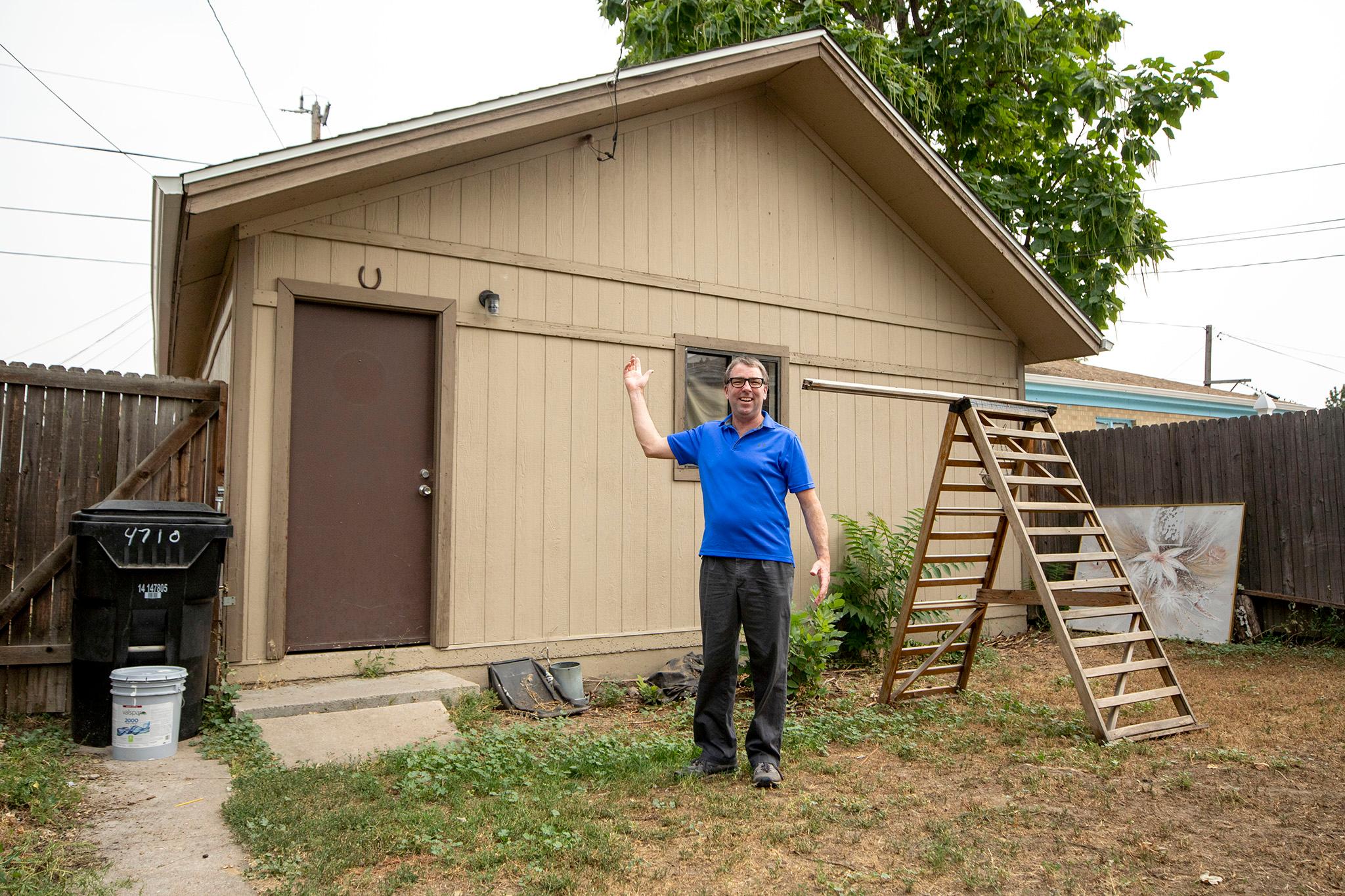It seems like every other week Denverite is writing about ADUs -- accessory dwelling units.
This neighborhood has been rezoned to allow for ADU construction. Here's some more money for ADU construction.
You get the drift.
We're all over it because when city officials talk about the housing crisis and/or the housing affordability crisis, accessory dwelling units are one of the first "solutions" that are brought up.
And more Denverites are looking to add ADUs to their properties, according to Laura Swartz, Communications Director for Community Planning and Development.
It's time to revisit what they are, what they cost, and how hard it is to actually build them.
What and why are ADUs?
The what: An accessory dwelling unit is ... an accessory to your dwelling unit. They are small backyard homes, also known as mother-in-law suites, casitas or carriage houses.
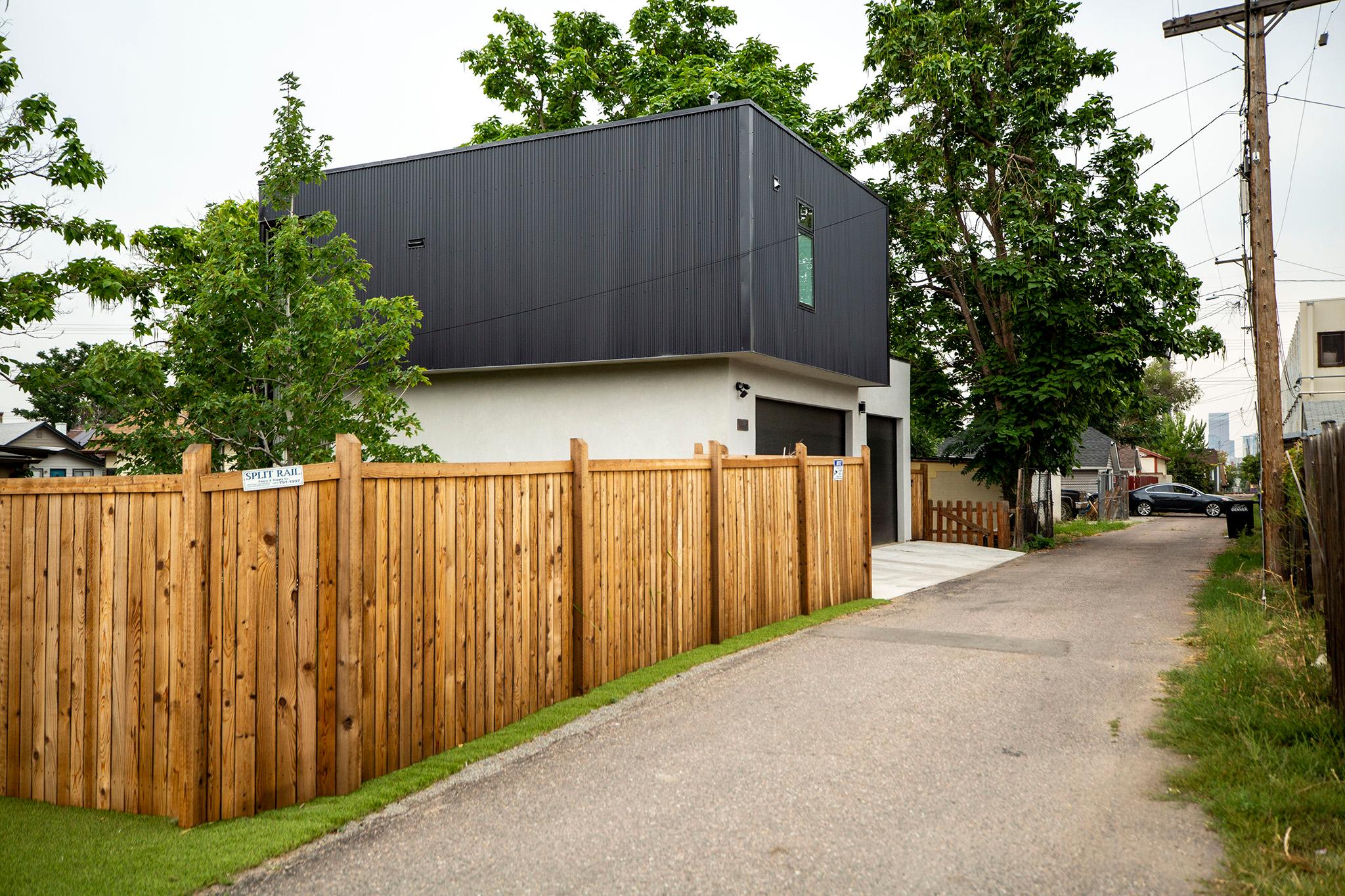
They can be detached from the main house or they can be attached via an extension to the main property, on top of an existing garage or a basement. ADUs are not duplexes, nor can you build an ADU at an existing duplex.
The why: The median closing price for homes in Denver landed at $545,000 in June and median monthly rent for a one-bedroom apartment jumped 4.8 percent from July to August -- $1,530 for a one-bed place. It's expensive to be here and getting more expensive.
On a tour around west Denver with Councilmember Jamie Torres a few weeks ago, she said that ADUs on the west side are being used as "anti-displacement tactics," as that area sees a rise in the cost of living and gentrification.
The city's 20-year plan for how Denver should look, feel and grow specifically mentions that ADUs could help with growth, gentrification and displacement throughout the city.
Swartz said ADUs can provide additional space for families looking to house relatives or homeowners can rent out the space for additional income both long and short term.
"As our city grows and changes, the way people live is changing, too," Swartz said. "Creating an ADU can have a big impact helping residents grow their home equity. These smaller dwelling units are also a low-impact way for neighborhoods to expand their range of housing choices."
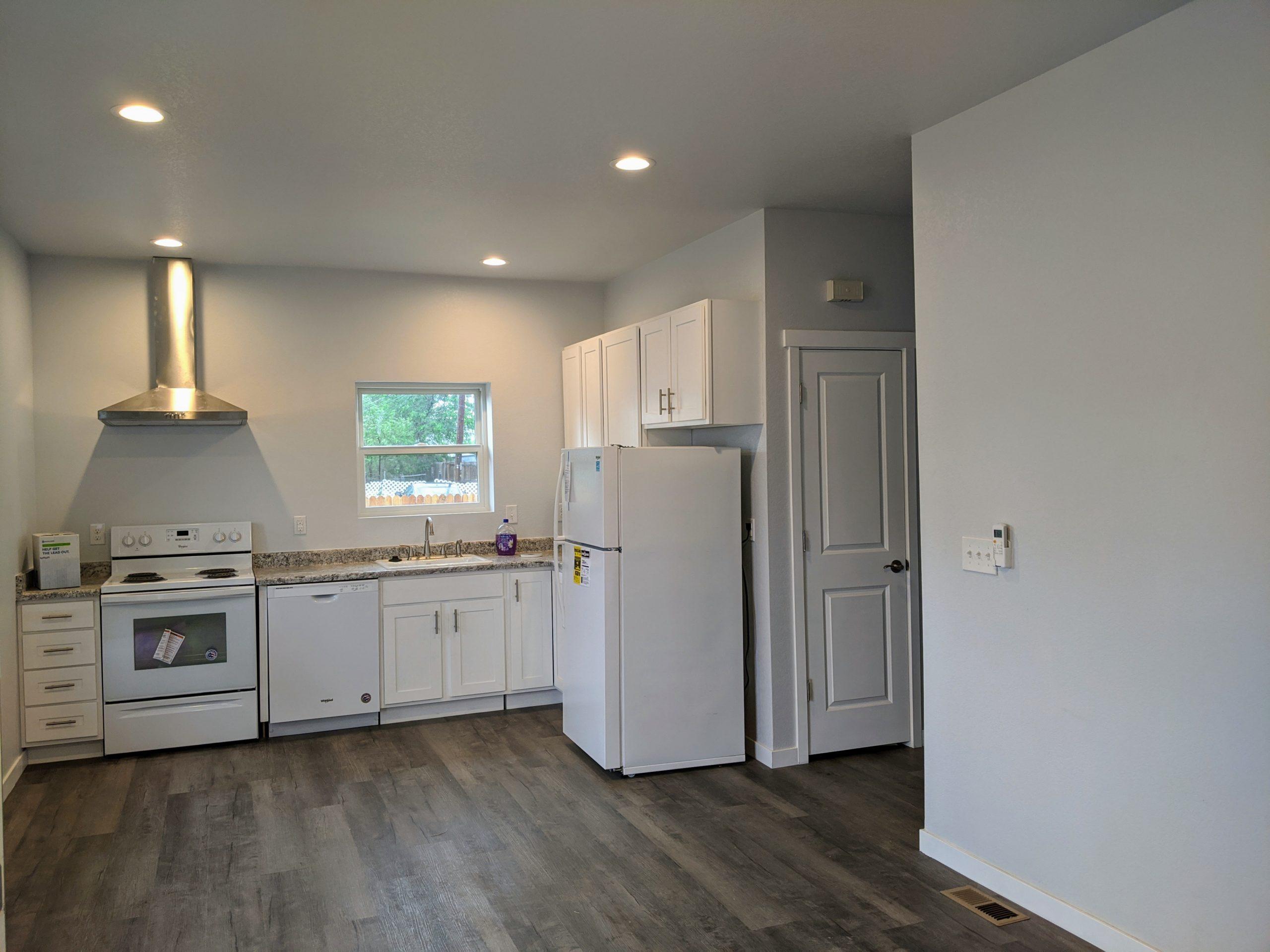
For example, Eric Dahm, a 53-year-old Globeville resident whose home was built in 1911, wants to build an ADU for his 83-year-old father. Dahm said later in life, he could see himself renting it out at an affordable rate or giving the space to his now 22-year-old son.
Extra space for relatives? Check. A possible source of additional income? Check.
Can anybody build an ADU? (No.)
With most property additions or fixes, you need to run it by the city first. So, if you're interested in constructing an ADU you need to first make sure you're properly zoned for it.
The process can be complicated and tedious. In Dahm's case, he first applied in September 2019. He was approved in August 2021.
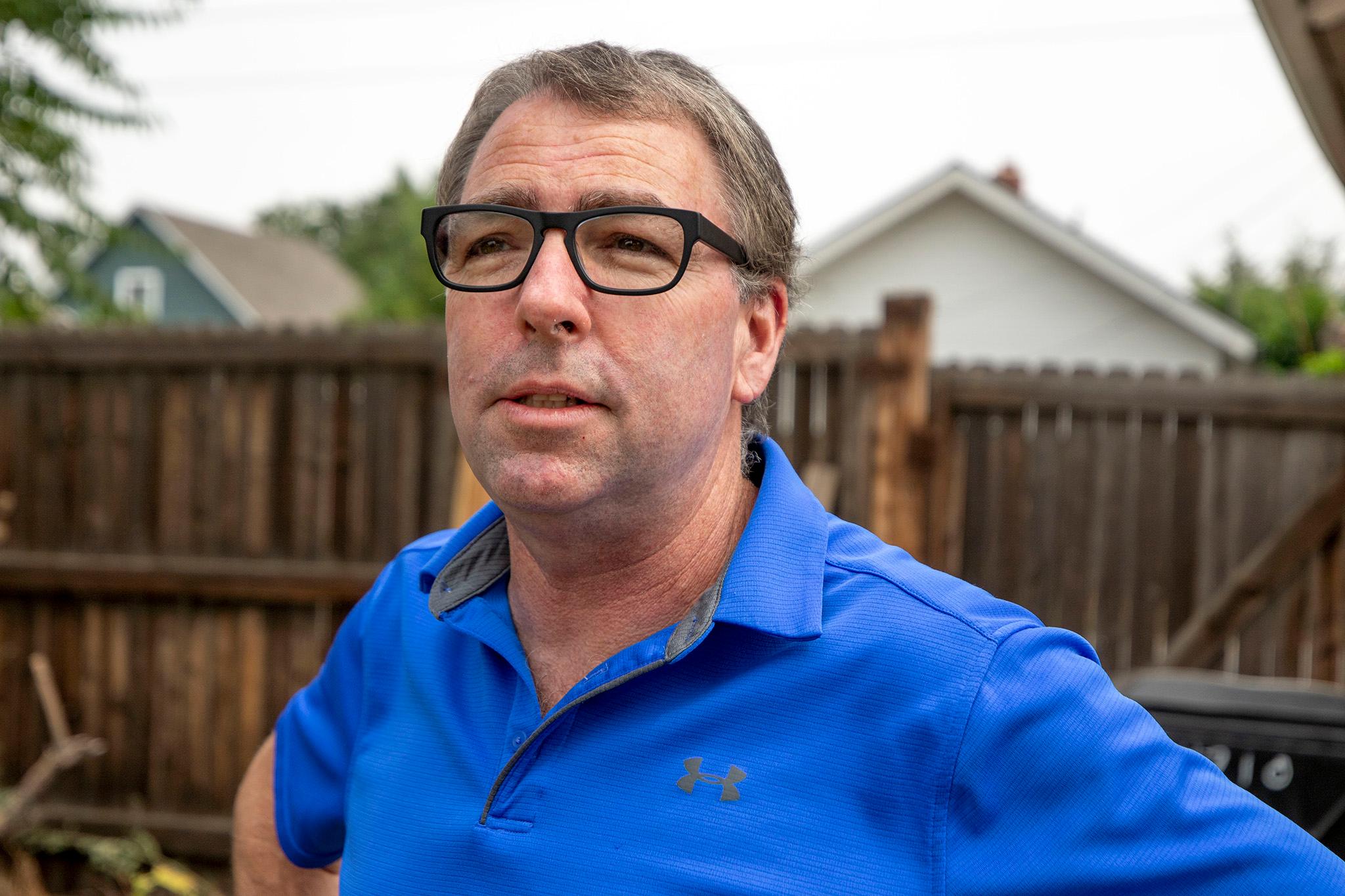
"It took over a year for me to go from starting the application to getting my first email back from the city stating that they were starting the process," Dahm said.
Sarah Senderhauf, a sales manager and broker at L&D Construction which builds and designs ADUs, agrees.
"Right now we're seeing a lot of people who are requesting rezoning for just one lot. It can be challenging," Senderhauf said. "If you take a look at a map of the city where zoning is not allowed, it looks like a checkerboard. One neighborhood allows it. One neighborhood doesn't."
According to city officials, about 30 percent of Denver is currently zoned to allow for an ADU.
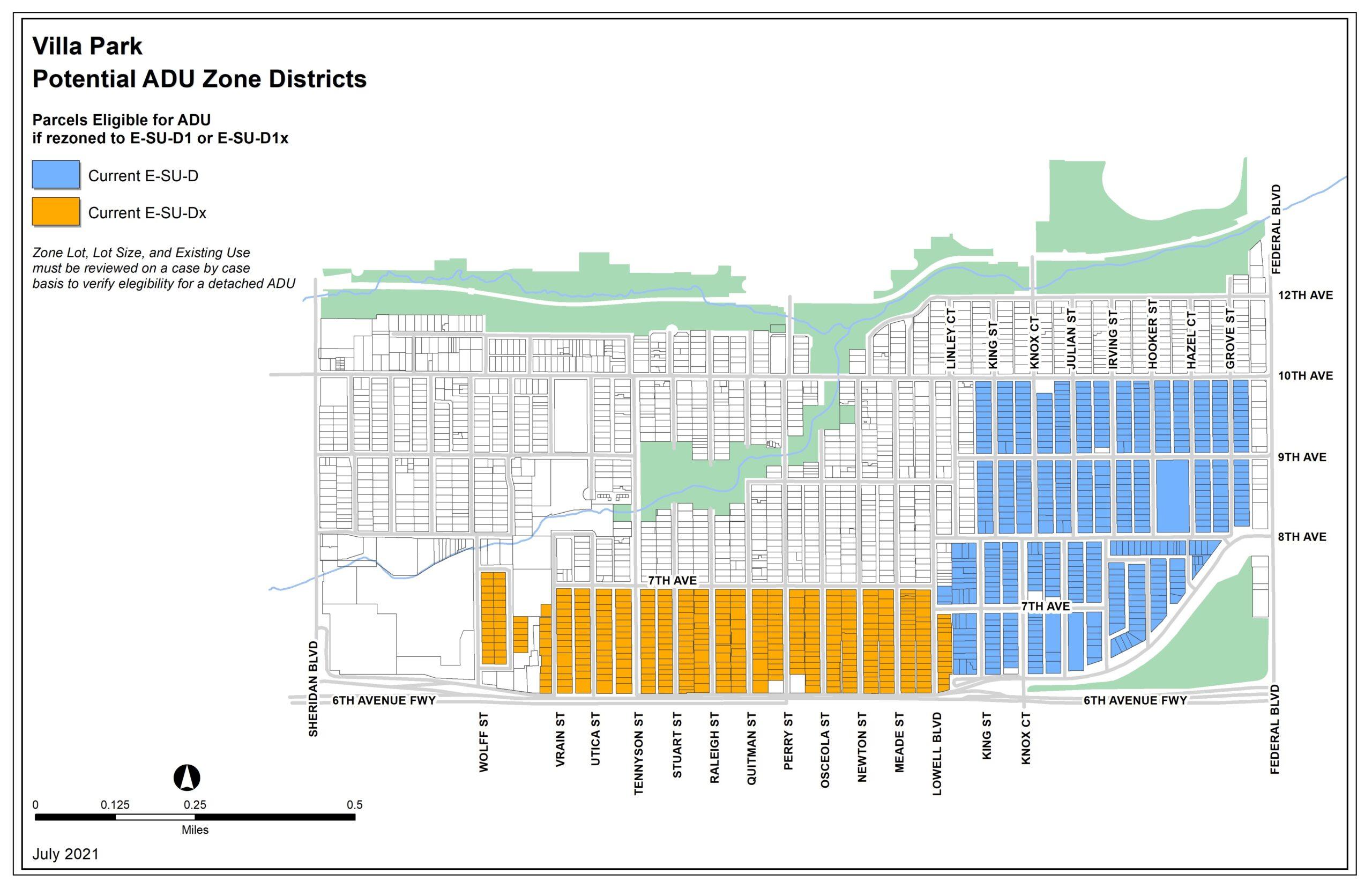
Hence the complete neighborhood rezoning efforts by several Denver City Council Members.
"From 2010 to 2020, there were no neighborhood-scale, ADU-specific rezoning proposals taken to Council," Swartz said. "In the last year, two have been approved: Chaffee Park and Sloan's Lake, and two more are in progress: East Colfax and West Area (Barnum/Villa Park/possibly Valverde). These are enabling thousands more properties to be eligible for ADUs."
And rezoning requests have gone up, Swartz said. In 2019, only two homeowners asked to be rezoned for an ADU. That number increased to 29 in 2020 and as of May 2021 that number stands at 19 for the year. (No, that's not a lot overall.)
The other problem with the rezoning process is the fine print, Senderhauf said. Differing restrictions on how tall homes can be or where they must be built on a property can drive up costs. For example, ADUs can only go up by a half-story, causing the roof to be more sloped, which is more expensive than just building a full story.
Swartz said the city agrees.
"Blueprint Denver... specifically recommends that the city look to reduce barriers to ADU construction," Swartz said. "Our zoning codes are one such barrier. Some zoning regulations are so nuanced that they can lead to strange and costly design outcomes."
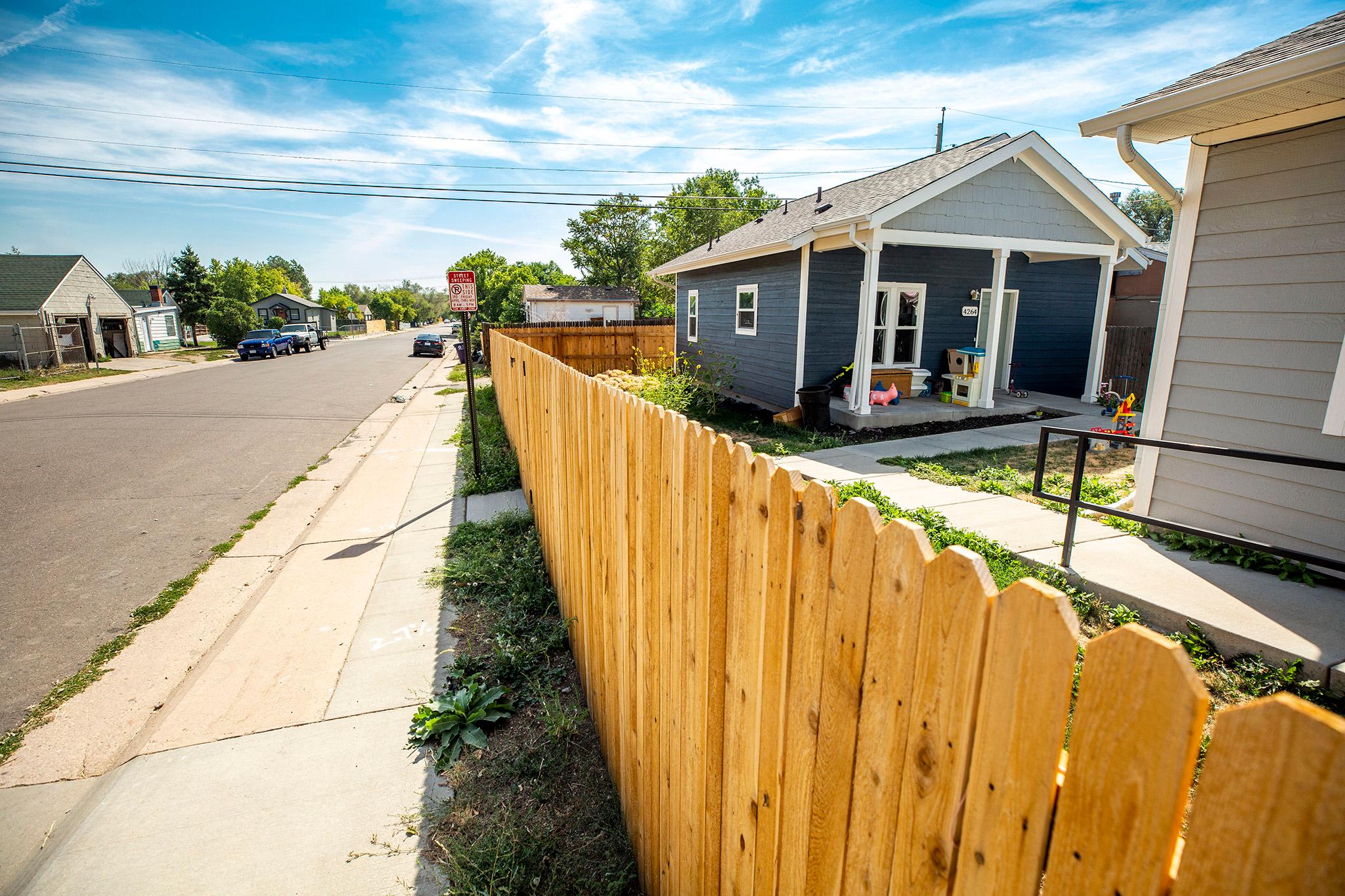
An important detail: How much does it cost to build an ADU?
ADUs are expensive. Period. The average price of an ADU can range from $300,000 to $340,000 in permitting, designing and building, according Senderhauf. Those numbers have only increased during the pandemic.
"The pandemic has increased the cost of materials," Senderhauf said. "A lot of people are doing home improvement projects and there's a lot of building going on. Canada had a hard winter, which is where we get lumber from. We're starting to see lumber prices come down, but it hasn't hit retail market value yet."
Dahm, who's working with Senderhauf on his ADU, said he was initially quoted around $280,000. After he received the permits, that cost went up to $350,000.
"Sarah called me back in the spring and said the cost of lumber went up 40 percent," Dahm said. "I've actually pulled back from the project right now because of the pricing. I want to wait for it to come down from the $300 market. But even that would cost me about $2,000 a month in mortgage."
Senderhauf said homeowners have options to help pay for their ADUs either through loans or home equity line of credit.
The West Denver Renaissance Collaborative runs the West Denver Single Family Plus pilot program, which assists homeowners with developing, designing, financing and constructing detached ADUs.
Renee Martinez-Stone, the director of the West Denver Renaissance Collaborative, said the program is aimed toward moderate- and low-income homeowners in nine west Denver neighborhoods, including Athmar Park, Barnum/Barnum West, La Alma/Lincoln Park, Sun Valley, Valverde, Villa Park, West Colfax and Westwood.
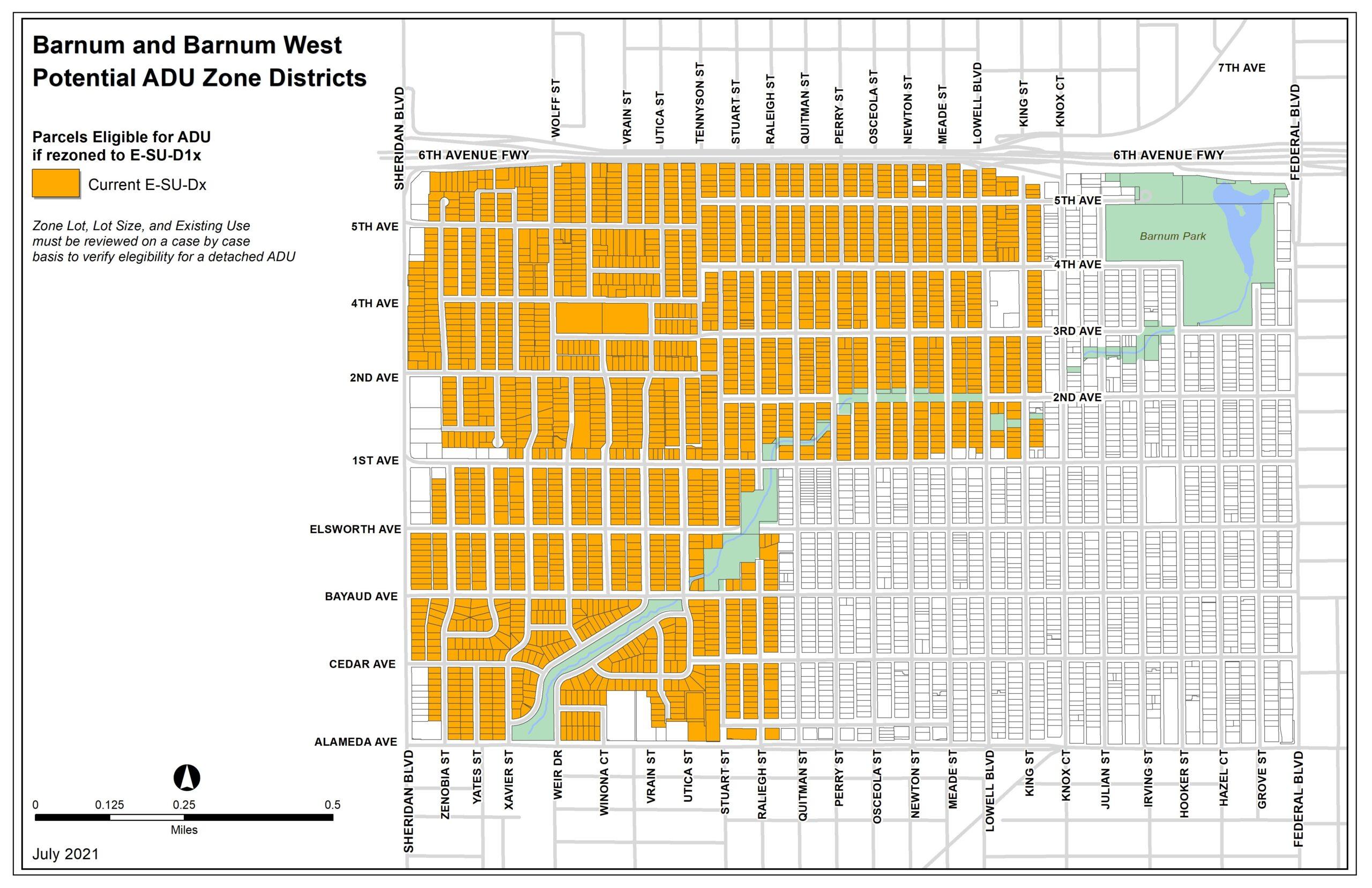
The program offers subsidized loans to homeowners. The loan comes with one major stipulation: if a homeowner makes 81 percent of the median income or more, they must rent to someone in the 80 percent or less range to qualify.
If the homeowner makes 80 percent and under, the tenant isn't required to have a specific income.
Martinez-Stone said the program also helps homeowners through the long process of rezoning.
What's the city doing to make it less complicated?
The city is well aware that the ADU process is exhausting. During Dahm's City Council meeting regarding his permitting, District 9 Councilmember Candi CdeBaca said, "We shouldn't have to go through all of these hoops to get here."
Swartz said her office is planning a "citywide conversation this fall" to chat with residents about ADUs.
"Altogether, this work will take about a year, during which we will meet with residents and neighborhood groups across the city," Swartz said. "This project will look at how the Denver Zoning Code regulates ADUs, including how they are designed, how they fit in with different types of neighborhoods and block patterns, and how updates to the zoning code may reduce barriers to creating ADUs."
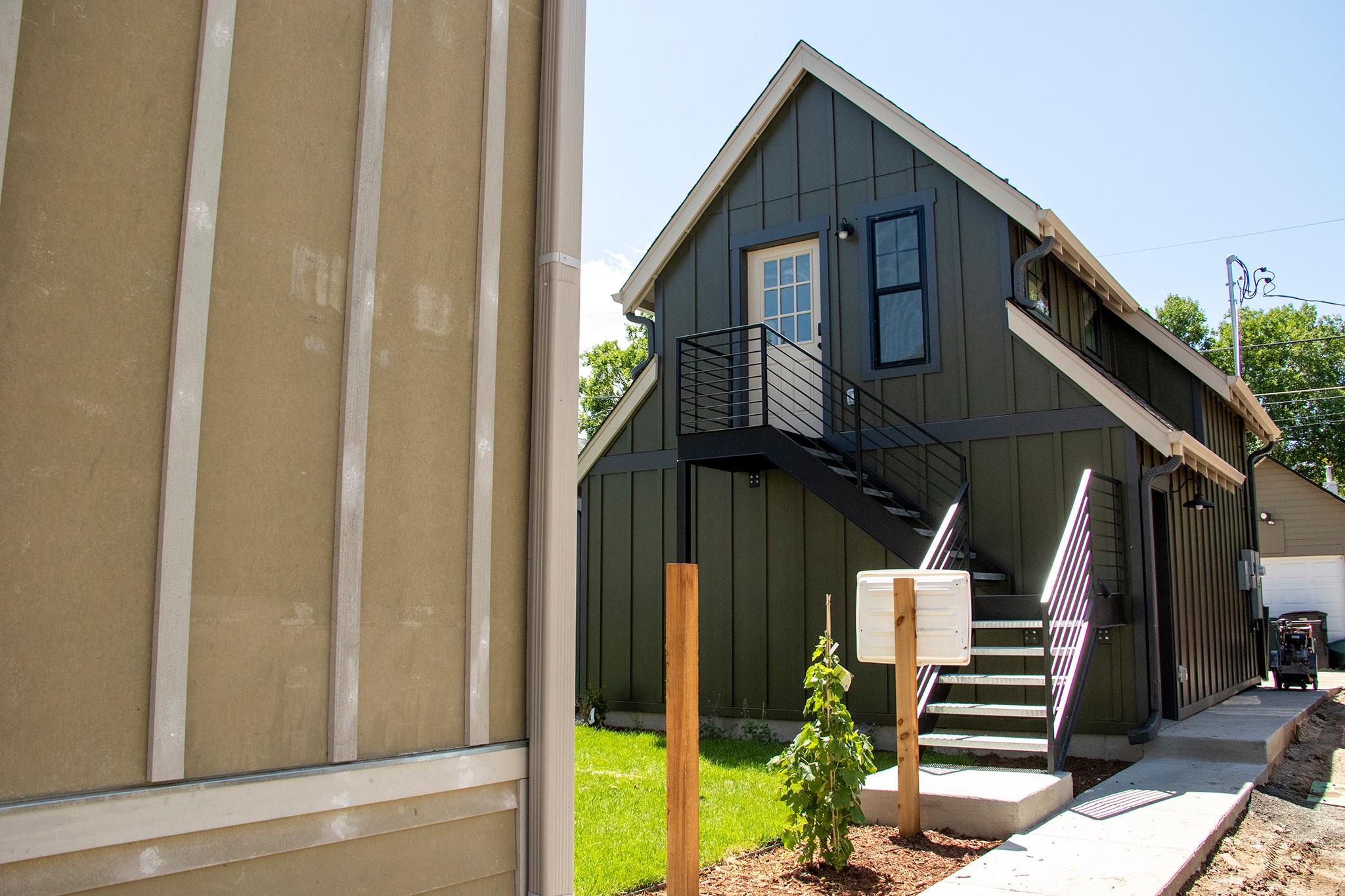
Dahm is looking forward to the changes, which he believes will help once the cost of materials go down.
"It took my neighbor four years to get her ADU built," Dahm said. "Now you come to me and I've started in 2019 and just finished my paperwork in 2021. I can see how the city is starting to expedite the process, along with making some restriction changes. By the time I build it, I can probably put more into it."

